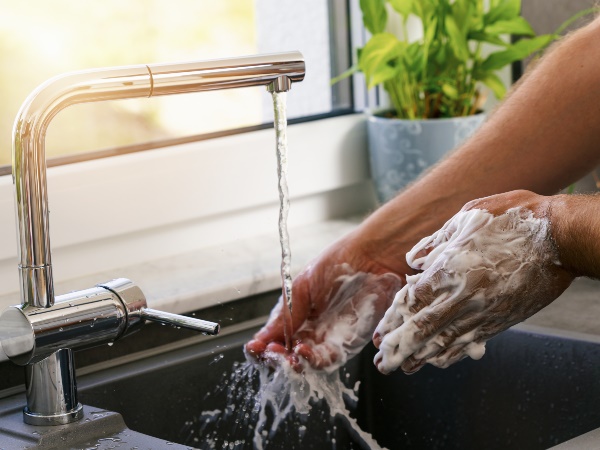
Hand washing has become crucial in helping to curb the coronavirus. (Getty Images)
Multimedia · User Galleries · News in Pictures Send us your pictures · Send us your stories

Hand washing has become crucial in helping to curb the coronavirus. (Getty Images)
Multimedia · User Galleries · News in Pictures Send us your pictures · Send us your stories
A significant number of South Africans cannot follow health and hand-washing advice and are unable to practice good hand hygiene, writes Amil Umraw.
Celebrated every year on 5 May, Hand Hygiene Day mobilises people around the world to increase hand hygiene - particularly in health-care facilities - to protect health care workers and patients from infections.
Hand washing has also been recognised as one of the most effective ways to reduce the spread of the Covid-19 virus and other infections.
This year, the World Health Organisation’s timely campaign for Hand Hygiene Day is: “Save Lives: Clean your hands”, and is appropriately aligned with the Year of the Nurse and the Midwife, which aims to recognize nurses and midwives as front-line heroes, highlighting their critical roles in infection prevention and the battle against the coronavirus.
Hand hygiene must be made a priority in South Africa. The Covid-19 outbreak has starkly highlighted how hands are the highways to the spread of infection.
Germs on the hands are the most common ways that infections are spread and passed into our bodies.
Washing hands with soap has long been highlighted by health authorities around the world as an effective way to restrain life-threatening preventable diseases, such as diarrhoea in children.
Diarrhoea in South Africa is a major public health problem and is one of the main causes of deaths in children under the age of five. Diarrhoea accounts for 3.4% of total deaths.
It is therefore vital to continue educating our communities on the importance on washing hands with soap. According to research, this can reduce the rate of diarrhoeal infections by almost 50% and acute respiratory diseases by up to 25% in children.
When practiced by mothers and birth attendants, it can reduce neonatal mortality rates by almost 40%.
Studies have shown that 60% of South Africans do not wash their hands with soap after visiting the toilet or before they eat, and those that do, do not use soap.
We must amplify the call to all South Africans to wash hands regularly especially after using the toilet, changing baby nappies, handling waste and before preparing food.
We must strengthen efforts to get people to actively engage in good hand hygiene practices, as part of the overall promotion of good health.
South Africans are being told to wash their hands to fight the spread of coronavirus but in South Africa many can’t.
But how are many South Africans supposed to wash their hands regularly if their communities have little to no access to clean water, sanitation or soap?
A significant number of South Africans cannot follow health and hand-washing advice and are unable to practice good hand hygiene.
We must use the conornavirus pandemic as a reason to finally push for improvements to water supplies. Now is the moment to reflect on what additional actions will be needed to reinforce water security.
We must seize this moment to reinforce water security in a country hit by frequent droughts.
The Department of Water and Sanitation has been supplying water tankers, sourcing groundwater and drilling additional boreholes for vulnerable communities, in a bid to fight the spread of Covid-19.
This is essential to protecting South Africans from all disease, and they must continue to work on ensuring that all South Africans have access to clean water and soap beyond the current crisis.
Government has an opportunity - now more than ever - to put all means necessary into place so that regular hand washing with soap and clean water becomes a normality for all South Africans.
- Amil Umraw is a freelance journalist and writer.